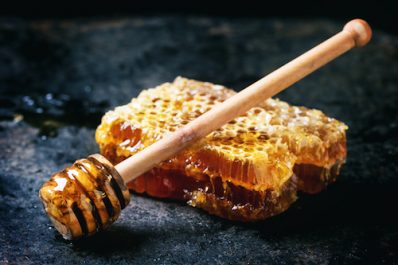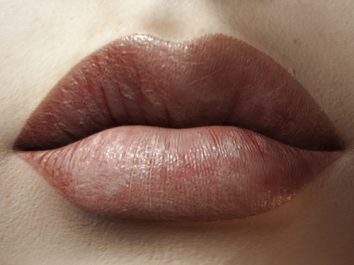The Common Ingredient In Your Chapstick You Might Be Allergic To
 I’ve always suffered from dry lips. I naturally have dry skin and my lips are no exception. I carry around tons of different chapsticks and keep them on hand everywhere.
I’ve always suffered from dry lips. I naturally have dry skin and my lips are no exception. I carry around tons of different chapsticks and keep them on hand everywhere.
My collection included wonderfully hydrating lip masks from high-end beauty lines that were not cheap. I rarely wore lipstick because of my dry skin so I would splurge on hydrating lip balms with tint instead.
Then, about four months ago, I noticed my lips getting increasingly drier. They would start to flake and crack and get really red. I chalked it up to not drinking enough water or the weather changing.
They would get better, then get worse, then slowly get better. I probably had three days out of the month where my lips were great, and the rest were days battling dry lips that were peeling and chapped.
One day I woke up and noticed my lips looked worse. It was as if overnight they began to get raw, red and a little swollen. I kept thinking this has to be some sort of severe chapping going on.
For days I would battle with my lips, slathering on chapstick to try and get them to calm down. Instead, my lips would get even more raw, cracking and bleeding, and peel off in sheets. It looked like I had a horrible sunburn on my lips.
It got to the point where my entire mouth had a red, chapped ring around it, and my lips were swollen, raw, and burned and itched terribly. It was at that point I began to consider that I was having some type of allergic reaction. To what, I had no idea.
I began looking through all of my beauty products. There was literally no change in anything. Not in soaps, detergents, makeup, skincare, diet, nothing. What was causing this?
Eventually my lips got so bad I had no choice but to run to Urgent Care. They were in a horrible state and I was in a lot of pain. I couldn’t open my mouth and they were swelling and bleeding. The skin around my mouth was horribly chapped and cracking.
I was immediately put on Prednisone. Within an hour of taking it my lips looked 80 percent better. Now on to what was causing this allergic reaction.
Upon more research I discovered it is extremely common to develop an allergy to beeswax, especially if you are a faithful user of chapsticks.
Your skin can eventually become sensitized to beeswax, and over time with consistent use develop an allergy. This is what seemed to be going on here.
I was constantly slathering on chapstick 24/7. I would even put it on outside of my mouth to keep it hydrated. This explained why my mouth was getting worse. Here I was slathering on chapstick trying to heal the wound and instead I was creating it.
Propolis is the glue that bees make to build and repair their hives. Propolis is also what’s found in beeswax because it all comes together when bees make honey and wax. It’s essentially digested particles of bark, pollen, and resin.
It’s also what tends to be the cause of a beeswax allergy in people who use a lot of products containing the ingredient. For most, the allergy is to lip balm.
For those who develop the allergy they will notice dry, chapped lips that eventually turn into a burning rash around the mouth. Sound familiar?
The next step, once you’ve identified an allergy to beeswax, is to stop using all products containing the ingredient. Lip balms are the first thing to go, but check all lotions and other beauty products.
You will be surprised to see how many of them contain beeswax as an ingredient because it gives beauty products that creamy texture but never spoils.
I was able to heal my reaction by taking Prednisone and my allergy medication, and using topical hydrocortisone cream and Neosporin on my lips. During the day I use Aquaphor and nothing else.
I am also getting allergy testing done to rule out any food sensitivity, but based on my symptoms it looks like beeswax was the culprit.
I highly encourage anyone who is battling with dry, chapped and sensitive lips to stop using chapstick all together and see what happens! You might be surprised to find your chapstick is actually the cause of your dryness.
















